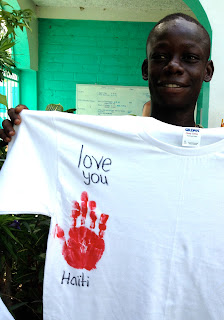“My Dad is not crazy,” Mr. Martin’s daughter expressed. “He’s just mad, and tired of not feeling well.”
It’s difficult for families to observe and accept the decline in the medical and mental status of their loved ones. That, and the possibility of their loved one needing placement in a nursing home, is an overwhelming decision. But often worse for the families is to learn that their loved one should be committed to a geriatric psychiatric unit (“geri-psych” for short) for evaluation and treatment.
Mr. Martin had come to our facility at his and his family request. Apparently, he’d been quite ill for several months, being in and out of the hospital, until his recent discharge to a nursing home in town. While at that other facility, he reportedly became agitated with the staff, and was shipped to a psychiatric hospital.
As it turned out, Mr. Martin was found competent, with no reason to be committed to the psych ward. He was merely angry, yet there was no evidence he wanted to cause any harm to himself or to anyone else.
Maybe he was just having a bad day, I questioned.
Although the hospital records reflected that Mr. Martin was a short-tempered man, I thought we should give him a chance at our facility. Maybe a new place and new faces would cheer him up. Maybe not. But we were open to the challenge.
“Mr. Martin and his daughter are very excited,” the hospital discharge planner expressed to me on the phone. “His daughter said she prayed for him to be accepted at your facility, and she believed God answered her prayers.”
I’d heard of other people “wanting” to come to our nursing home, but that was the first time I heard of someone “praying” to be accepted. I felt humbled. I sensed in my heart we had made the right decision to accept the placement.
Mr. Martin came under our care, with no problems. I observed the staff trying to converse with him, even though he was not prone to engaging in long visits. Sometimes, he would determine what he wanted or how he wanted things to be done regardless of the staff and other resident’s needs. The staff always showed him respect and patience.
“He is a sweet man,” I once heard a nurse say. I was pleased to hear her say that.
I visited with Mr. Martin several times. He was a practical person and would talk straightforward, again, wanting to keep the visits brief. He preferred to stay in his room most of the time.
After a few months, Mr. Martin began to show improvements in his overall condition. He seemed more motivated to get up and wheel himself throughout the halls. His strength was visibly better. His appetite, initially poor, was now good.
“My Dad wants to receive the Lord,” Mr. Martin’s daughter told me on a phone conversation. “He has made poor decisions in his life. He was an alcoholic and my mother left him. Just now, in his seventies, when his health is so diminished, he realizes he needs to atone for mend his mistakes somehow.”
I listened with empathy. I was deeply touched with this daughter’s understanding and compassion toward her Dad. I wondered about the magnitude of the struggles they may have faced in the past. I guess at that point, it didn’t matter. The most important event was the mutual closeness and trust they had achieved.
“I want to let you know I’ll be there today with our Pastor. My Dad will be baptized.”
Mr. Martin was baptized. He seemed more at peace after that. He actually became more talkative with the staff.
One Friday, I saw him in the hall, and at first glance he looked nearly unrecognizable. His face seemed more round as he evidently had gained some weight. His blue eyes
looked sparkly, his cheeks shone with cerise pink shades, like a blooming garden. I also noticed his strength had increased by the way he maneuvered his wheelchair.
“You look great, Mr. Martin,” I expressed as I passed him.
“I’m feeling better.” His face sported a gracious smile. Then I turned and saw his slender figure fade down the hall as he was headed to the dining room.
Feeling good and feeling God, I mused.












































